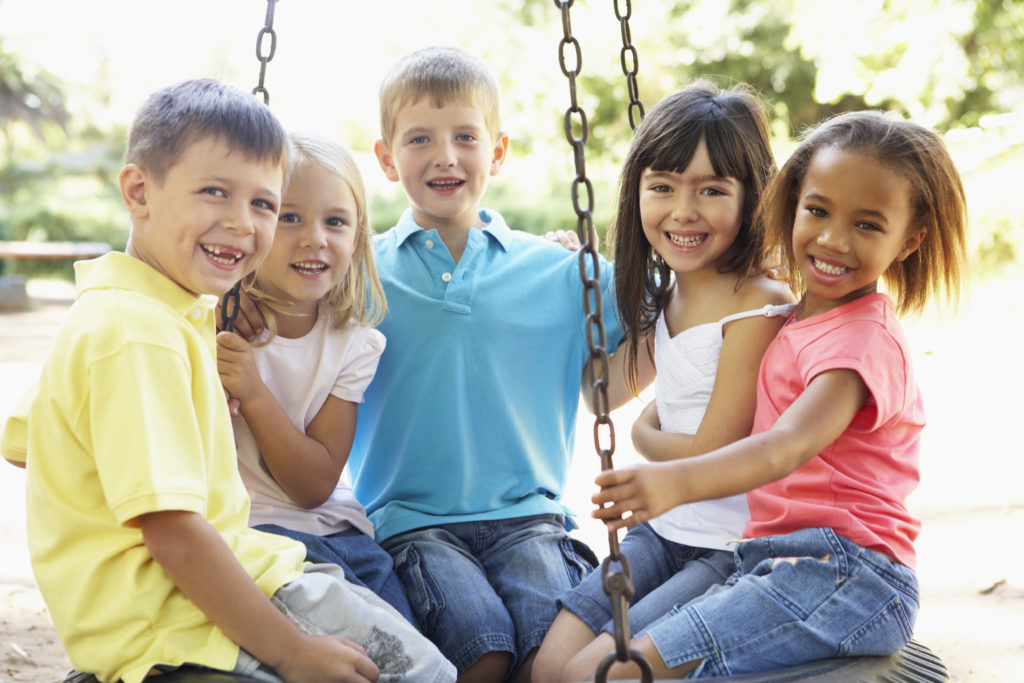How many of you cringe every time you hear the question, “What about socialization?” I have to admit, at times I’ve wanted to roll my eyes. And as homeschooling moms we have seen the gifs and memes about the question that make us laugh. Go ahead and laugh a little. It’s the inside joke only we homeschoolers get to laugh at, right? But guess what? I asked the very same question years ago.
“What about socialization?” is a good question.
What do people mean when they ask, “What about socialization?”
To answer that question let’s start with the actual definition of socialization.
Socialization—The act of adapting behavior to the norms of a culture or society is called socialization. Socialization can also mean going out and meeting people or hanging out with friends. (vocabulary.com)
By looking at each part, maybe we can answer the question in our own minds, as well as be able to talk to people in a kind, and thoughtful way (you know, without the 🙄).
Socialization: The act of adapting behavior to the norms of a culture or society.
The Biggest Socialization Myth
I think we’ve all heard the arguments against homeschooling, and many of those arguments point toward socialization. Opponents of homeschooling make assumptions about our kids, that they are somehow isolated and don’t interact with a variety of people. If homeschooling was truly as isolating as many believe, then socialization might be an issue. Dr. Wile wrote a thorough answer to the socialization question if you aren’t convinced that homeschoolers are truly socialized despite the fears of some.
But the one concern I want to address is the idea that homeschooled children are weird or socially awkward. And remind us all of the truth.
5 Truths about the Weird, Socially Awkward Homeschooler
1. “Evidence” of these concerns often starts with something like, “I know a family…” and then they proceed to talk about them being behind in school, or even more often, weird or awkward. The problem with this anecdotal evidence? No one can back up the claims with research. Yes, you may know a family. And guess what? I do too. Many families. It was knowing some of these families that changed my mind about homeschooling when I first heard about it. The truth is research shows the exact opposite. Homeschool students exhibit positive social behaviors.
2. Education is not the sole factor in socialization. Family dynamics, personality, a child’s circumstances and environment all play a role in their socialization. The truth is you will find children who have trouble adopting behavior to the “norms” of a culture or society no matter how they are educated. If you aren’t convinced, just spend some time on social media. The vast majority of people have been educated in the public school system, and it doesn’t take long to see that many struggle with appropriate communication skills.
3. Norms means “a standard or pattern, especially of social behavior, that is typical or expected of a group.” So who gets to define what the norms are? Honestly, I’m not a big fan of many of the world’s standards. The truth is, our standard as Christian homeschoolers is not the same as society’s.
4. As a society we like to say each person is a unique individual, but then we get uncomfortable when someone is different. The truth is, different isn’t necessarily a bad thing.
Some parents have even noticed a difference in their children and choose to homeschool based on it—to give them the chance to grow and thrive in a safe environment, to become the person God created them to be.
5. We admit to being a bit weird as a family 🙂 My philosophy is simply this: own it! The truth is we need a lot of different people in this world. It is what makes life more interesting, how we grow in relating to others, and how we learn new things from one another. Same is not how we were created.
Socialization: Going out and meeting people or hanging out with friends.

When people ask about socialization, many are really asking “Will they have friends? Will they know how to deal with conflict and differences of opinion? How will they learn to work together as a group, or know what to do in social situations?”
Yes, those are valid questions. And we have to be intentional in how we answer it, not for other people, but for our children. I believe the answer lies not in trying to “socialize” our children (they already are!), but in helping them develop community.
Community—a feeling of fellowship with others, as a result of sharing common attitudes, interests, and goals.
We are designed for community and so are our kids. And as homeschoolers, we do need to be intentional about helping them build relationships with others.
And know this, having relationships with people of different ages is important. But so are peer relationships. Having like-minded friends can be one of the sweetest blessings in life. We can love, encourage, and help one another—every person, no matter what age they are, needs that!
Why We All Need Community
I shared why we need community in How to Stay Connected to God Through Community:
1. Community refines us.
How can we say we love if we never have to love the hard-to-love person? If we never face forgiving the ones who don’t think they were wrong? What if the Holy Spirit didn’t confront us with our own sinful nature as we interact with our brothers and sisters? And who would challenge us? Living in isolation will never grow you as living in community will.
2. Community refreshes us.
Paul tells us “Bear one another’s burdens, and so fulfill the law of Christ” (Galatians 6:2). And he told the Thessalonians, “Therefore encourage one another and build one another up, just as you are doing” (1 Thessalonians 5:11). We cannot encourage one another in this Christian journey if we don’t make the effort to live in community.
3. Community helps us know we are not alone.
It gives us the courage to stand in an ever growing hostile environment. For someone to “get us” and the decisions we make in light of how the Scriptures tell us to live.
We need community. And so do our kids. Perhaps you have a vibrant community of like-minded friends already. Maybe it is your church, or maybe you belong to a homeschool group or co-op. But if not, ask yourself how you can help your children, and you, to build it.
The Socialization & Community Connection
So yes, the question “What about socialization?” is a valid question.
It’s a good question because it makes us stop and consider. To ask ourselves if our children are in fact developing the skills they need to live as mature, healthy adults after they graduate from our homeschools.
But perhaps the more important question while we are homeschooling is “What about building community?” And may we let that question guide us to be intentional in providing opportunities for our children to grow strong and lasting relationships with a variety of people, including their peers.
We Would Like to Help
Grace, Grow & Edify, The Homeschool Mastery Academy, and Heart-to-Heart Homeschooling have teamed up to help you create the community you crave and your children need. We are passionate about this subject.
So if there isn’t a homeschool group or co-op in your area, you can start your own! An we have a great resource to help.
Finding Community
Maybe your community won’t be a homeschool group, or co-op, but we encourage you to find a community. Whether through church, community organizations, or sports, we all need to find “our people” to encourage us along the way.




Trackbacks/Pingbacks